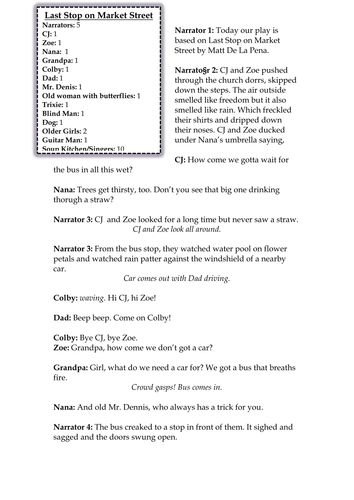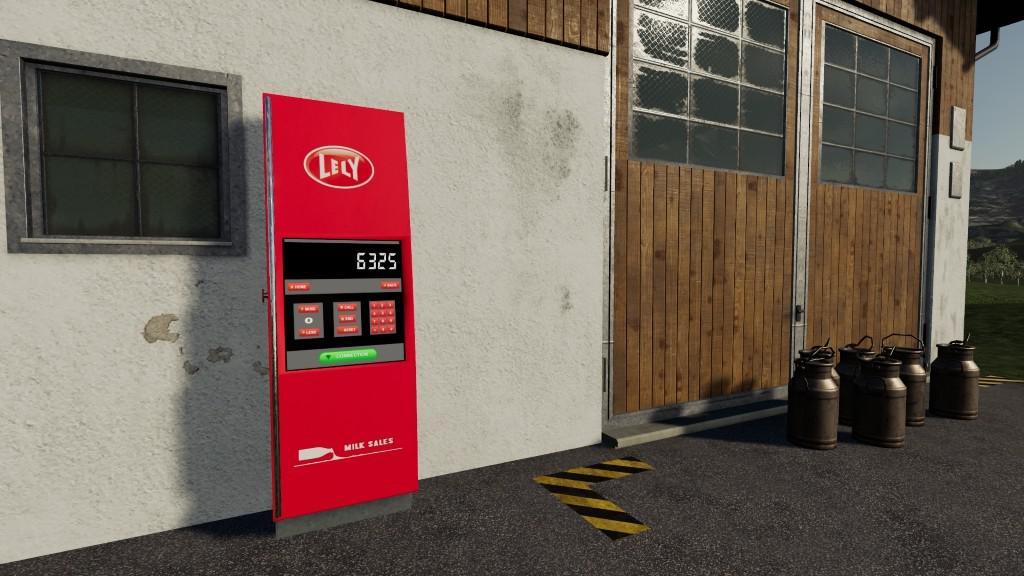The play, “Bus Stop” by William Inge, was set in a 1950s American diner in Kansas. Along with the scripts informative description of the costume, this showed us a lot of the style and time of the costumes. The characters in general weren’t very rich and had to make do with what they had. Rural kansas diner midwest heartland ensemble provincial romance snowstorm uil 1950s blizzard bus stop confined 2f scenes 2m 2f scenes 2m 1f scenes poetry dreams marriage cowboy singer Synopsis In the middle of a howling snowstorm, a bus out of Kansas City pulls up at a small roadside diner.
- Bus Stop Script PDF at Script Fly ($)
- Bus Stop Transcript at scripts.com
Note: Multiple links are listed since (a) different versions exist and (b) many scripts posted become unavailable over time. Please notify me if you encounter a stale link.
Other Links:
- Bus Stop ( tt0049038 ) at IMDb
- Bus Stop ( 24010 ) at TheMovieDB.org

Bus Stop Script Template
9940| Bus Stop | |
|---|---|
| Written by | William Inge |
| Date premiered | March 2, 1955 |
| Genre | Drama |
| Setting | Kansas |
Bus Stop is a 1955 play by William Inge. The 1956 film of the same name was 'opened up' in the beginning to include scenes on the bus and in places away from the diner.
Characters[edit]
Bus Stop is a drama, with romantic and some comedic elements. It is set in a diner in rural Kansas, about 25 miles west of Kansas City, Missouri during a snowstorm from which bus passengers must take shelter. The characters are:
- Grace Hoylard – Owner of the diner. She is 40ish, and pretty in a fading, hard-bitten way. She has a passionate side to her nature, loving a good fight and the attentions of a good man.
- Elma Duckworth – An intelligent, but naive and impressionable high school girl. She is Grace's waitress.
- Will Masters – The local sheriff. Brusque in manner, but goodhearted and a staunch Christian, described as a 'deacon of his church'. A highly 'moral' man in the general sense of the word.
- Dr. Gerald Lyman – A college philosophy professor who is articulate and charming but cannot hold a position, partially due to his resistance to any kind of authority, and partially due to his unfortunate taste for young women. He also has an obvious drinking problem.
- Cherie – A pretty young woman who comes from a difficult 'hill folk' background, and has left her innocence far behind. She is an aspiring nightclub singer, but has never worked in any establishment above the level of 'cheap dive'.
- Bo Decker – A brash young cowboy with boorish manners that hide a naivete almost as profound as Elma's. He has convinced himself that Cherie will be his bride, though Cherie wants nothing to do with him.
- Virgil Blessing – An older, wiser cowboy who has become a father figure to Bo (who was orphaned at the age of 10) as well as Bo's head ranch hand.
- Carl – The bus driver, who has an ongoing 'just passing through' relationship with Grace. As referenced repeatedly, this is purely sexual in nature.
Synopsis[edit]


The play is set in a diner about 25 miles west of Kansas City in early March 1955. A freak snowstorm has halted the progress of the bus, and the eight characters (five on the bus) have a weather-enforced layover in the diner from approximately 1 am to 5 am. Romantic or quasi-romantic relationships include Grace and Carl, Professor Lyman and Elma, and Cherie and Bo. Virgil and Will are the older authority figures outside the relationships.
Broadway[edit]
Bus Stop opened on March 2, 1955 and closed on April 21, 1956, running for a total of 478 performances. The opening night starred Albert Salmi as Bo and Kim Stanley as Cherie, and the play was directed by Harold Clurman.
The play was nominated for four Tony Awards in 1956: Best Play (written by William Inge; produced by Robert Whitehead and Roger L. Stevens); Best Featured Actress in a Play (Elaine Stritch); Best Scenic Design (Boris Aronson); and Best Director (Harold Clurman).
In 1996, there was a short-lived revival of the play that ran for 29 performances.
There was also a musical, again involving Logan, titled Cherry (1972).
Revivals[edit]
In 2010 and 2011 Bus Stop received three productions in Great Britain including an acclaimed production directed by James Dacre that played at the New Vic and Stephen Joseph Theatres. The Guardian wrote of this production that 'there is something beguiling about this forlorn slice of Americana, which mediates on the distances between towns and the distances between people, like an Edward Hopper painting with dialogue.'

Film[edit]
In 1956, Joshua Logan directed a film adaptation of the play starring Marilyn Monroe as Cheri and Don Murray as Bo.
Bus Stop Script Free
Television[edit]
In August 1982, Bus Stop was presented on HBO, a special filmed performance of the play at the Claremont Theater in California, directed by Peter Hunt. It starred Tim Matheson as Bo Decker and Margot Kidder as Cherie.
The play became a 26-episode American drama series that aired on ABC from October 1, 1961 until March 25, 1962.
Bus Stop Marilyn Monroe Script
External links[edit]

- Bus Stop at the Boston University Theatre at ArtsEditor
- Bus Stop (1955 production) at the Internet Broadway Database
- Bus Stop (1996 revival) at the Internet Broadway Database
- Bus Stop (1982 TV movie) at IMDb